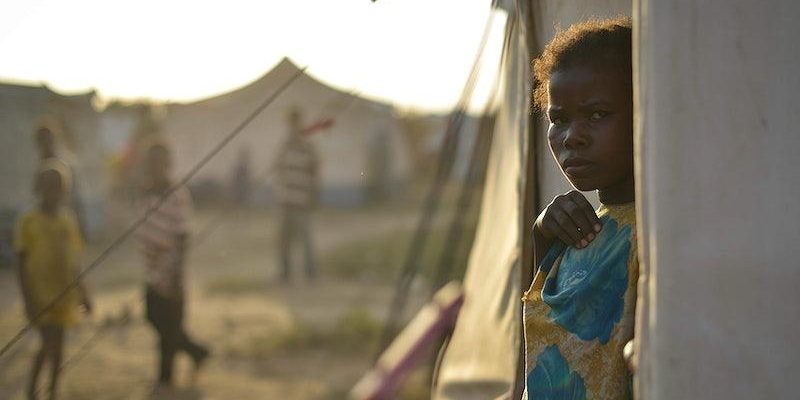Why we can’t afford to be ignorant to the Sudan Civil War any longer
“There is a genocide going on in Darfur”, a region in the west of Sudan. This was the claim made by the Sudanese Ambassador to the UK in early November.
The statement came following the siege and capture of El Fasher, the capital of the Northern Darfur region, by the Rapid Support Forces (RSF) on 26 October. The RSF is a paramilitary group originating from Arab militias, and it is currently at war with the Sudanese army. It is notorious for its history of repeated genocides against non-Arab populations in multiple regions of Sudan in the early 2000s, and its members have loudly and proudly declared their delight in the admitted genocides they commit.
After just a few weeks, estimates of death tolls in El Fasher already run into the thousands, with another 80 thousand more displaced. But the siege is not a singular event. Beginning in April 2023, the Civil War had sparked over disagreements between the leaders of the RSF and the Sudanese army after having staged a joint coup against the country’s previous leadership.
It is the single greatest humanitarian crisis of the century
Over 150,000 people have been killed in the conflict so far, with 30 million more in need of lifesaving aid, 24.6 million starving, and 12 million seeking refuge. Mass executions, purposeful starvation, and weaponised rape have all been used as tools by the RSF to subjugate the Sudanese population. The UN humanitarian chief, Tom Fletcher, has described it as “the epicentre of suffering in the world”. It is the single greatest humanitarian crisis of the century.
Although the crisis has been ongoing for two and a half years and the death tolls are massively high, the civil war is only now achieving mass media coverage in the UK. A possible reason for this is the recent conclusion of the RSF siege of El Fasher, which had lasted six months and ended on 26 October. El Fasher was the Sudanese army’s last stronghold in the Darfur region, and its capture represents an escalation in an already horrific conflict. On the other hand, fighting has recently stopped in Khartoum, the capital of Sudan, making it now possible to reach refugees who had been cut off from aid for over two years – a significant development.
Why the Sudanese civil war hasn’t already received the same kind of attention as the Israel-Palestine conflict is a statement of Western self-interest
Why the Sudanese civil war hasn’t already received the same kind of attention and coverage as the Israel-Palestine conflict, for example, is a statement of Western self-interest. Western powers are heavily involved and invested in the conflict in Gaza, as many of them are Israel’s greatest political allies. The two conflicts are similar in the kinds of war crimes being committed by the IDF in Gaza and the RSF in Sudan, yet Western ties with Israel are far stronger. They have no such connection to Sudan.
Also responsible for the lack of media attention is Sudan’s war on journalism and reporting. Journalists have been experiencing threats and harassment while in Sudan, and internet access in RSF-held regions has been cut. There has been a concerted effort to control and limit the outpouring of information about the civil war.
The same is true for international humanitarian organisations – what little international aid exists in Sudan faces threats and violence. The Red Cross, the United Nations High Commissioner for Refugees, and the World Food Programme have all extracted workers and volunteers from Sudan. Deliberate targeting and killing of international aid givers are common. Refugee communities are thus left isolated from aid and from the ability to spread the truth of the situation.
This conflict is not isolated within Sudan – external powers also seek to further the genocide of non-Arab peoples. Arms trafficking monitors, human rights groups, and the Sudanese government have repeatedly accused the United Arab Emirates of complicity in the genocides by funding and arming the RSF. While the International Court of Justice refused to hear the case against the UAE from Sudan, citing a lack of jurisdiction over it, UN experts have reported finding “credible” evidence that Abu Dhabi has supplied weapons to the RSF through Chad, and the US previously sanctioned the UAE in January for arming the RSF. The UAE denies these claims, a mere formality described by a former UN weapons monitor as “geostrategic gaslighting”.
The death toll will likely multiply several times, with the primary cause being preventable disease and starvation
Massive displacement of an estimated 13 million people in combination with devastated national infrastructure caused by years of violence, as well as extremely scarce food, water, and medical relief – with RSF fighters raiding and looting thousands of tonnes of food from UN storage sites – likely means many more will die of starvation and disease. The death toll will likely multiply several times, with the primary cause being preventable disease and starvation.
The conflict has had devastating consequences on the people of Sudan, and this is only going to worsen for as long as ceasefire negotiations continue to fall apart, and likely for a while after. The nation of Sudan is drifting towards disintegration, with all vital infrastructure, such as healthcare and education, on the brink of collapse.
Currently, it is essential to continue to provide as much relief as possible, particularly in the sectors of food, water, health, and sanitation. Although the dangers of delivering aid are numerous, many more will die without it. What we owe Sudan for our inaction over the last two years, we must make up for now.

Comments